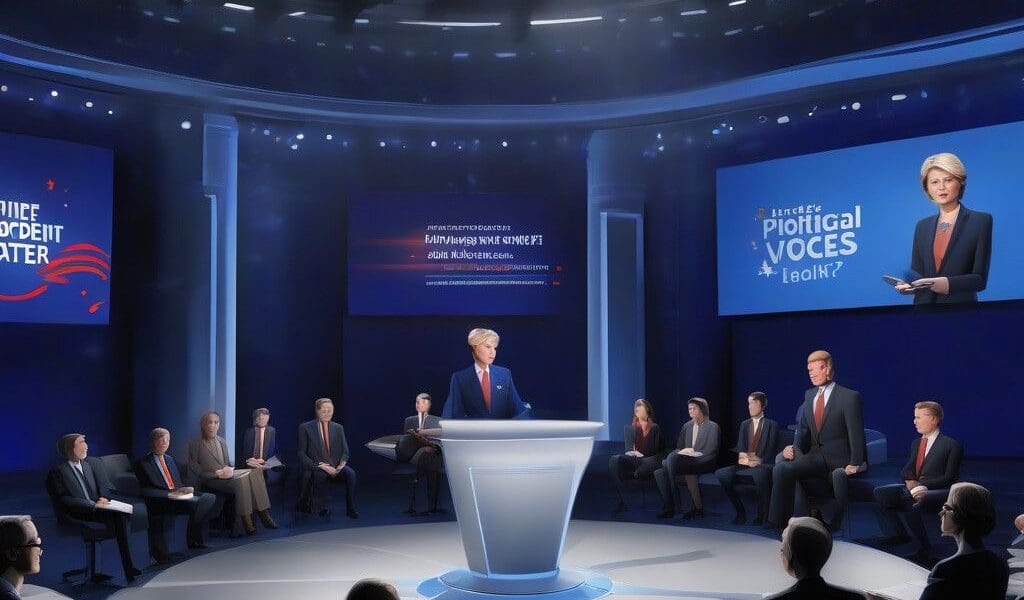Independent Candidates Face Off Against AI Avatar in Debates
The increasing presence of artificial intelligence (AI) in various sectors raises intriguing questions, especially in fast-paced environments like political campaigning. A recent online debate featured independent candidates Bentley Hensel and David Kennedy opposing an AI-generated version of incumbent Congressman Don Beyer, dubbed ‘DonBot’. This event showcased not only the capabilities of AI but also the potential ethical dilemmas it poses in the political landscape.
Using publicly available materials and Beyer’s website, the DonBot was created to simulate responses during the debate. Interestingly, Congressman Beyer, a Democrat vying for re-election, chose not to participate. The digital avatar’s metallic voice provided pre-programmed answers, lacking the human nuance of its source. The debate aired on platforms like YouTube and Rumble, although it attracted a disappointingly low viewership, peaking at under 20 viewers.
During the event, Hensel noted that the AI was designed to deliver neutral responses based on factual information, sparking discussions on core issues such as healthcare, gun control, and foreign aid. However, some responses lacked clarity, leaving parts of the AI’s messages unintelligible. For example, when questioned about why voters should re-elect Beyer, the AI responded, “I believe that I can make a real difference in the lives of the people of Virginia’s 8th district.” This statement, while vague, highlights the attempt of the AI to mirror the messaging common in political rhetoric.
The feedback regarding the role of AI in this debate has been mixed. On one hand, proponents argue that such technology can increase accessibility, allowing more candidates to participate in debates without needing to be physically present. On the other hand, critics raise significant concerns about transparency and authenticity. The lack of regulation surrounding the use of AI in political discourse could lead to manipulative practices in future elections, raising the specter of misinformation and misrepresentation.
The relatively small audience for this event underlines a critical point: the novelty of using an AI avatar does not necessarily equate to public interest or engagement. Engaging voters requires more than technological innovation; it necessitates a genuine connection and relatable communication that AI, at this stage, is fundamentally unable to replicate.
Moreover, as the political landscape evolves, there is a pressing need for transparent guidelines governing the use of AI in campaigns. The repercussions of AI-driven candidates or campaign proxies could pose questions regarding voters’ rights to truthful information. If AI can effectively mimic a candidate, distinguishing between human and machine-generated discourse will prove increasingly challenging for voters.
Looking ahead, these conversations are becoming essential. AI can potentially revolutionize various sectors, but its implementation in the political sphere must be handled with care, especially given its implications for democratic processes. The lessons learned from this online debate may shape how candidates leverage AI technology in the future, paving the way for a dialogue on ethics and responsibility in digital campaigning.
The recent use of AI in political debates invites stakeholders—candidates, parties, and voters alike—to reflect critically on how technology intersects with democratic values. As AI continues to permeate our society, understanding its potential and limitations becomes paramount. With the right regulatory framework, AI could augment political discourse rather than dilute it.
The implications are vast and demand careful scrutiny. The audience’s response indicates a clear message: technology alone cannot elevate politics. Genuine dialogue, transparency, and ethical frameworks must accompany the integration of AI into political discussions. It is this synthesis of technology and human engagement that may lead to more informed electorates and healthier democracies.
In observing this trial run of AI in political discourse, we stand at a crossroads. The choices made now will influence the landscape of future elections. The realm of AI-powered politics beckons for regulation, transparency, and the human touch—elements critical to preserving the integrity of democratic processes.








